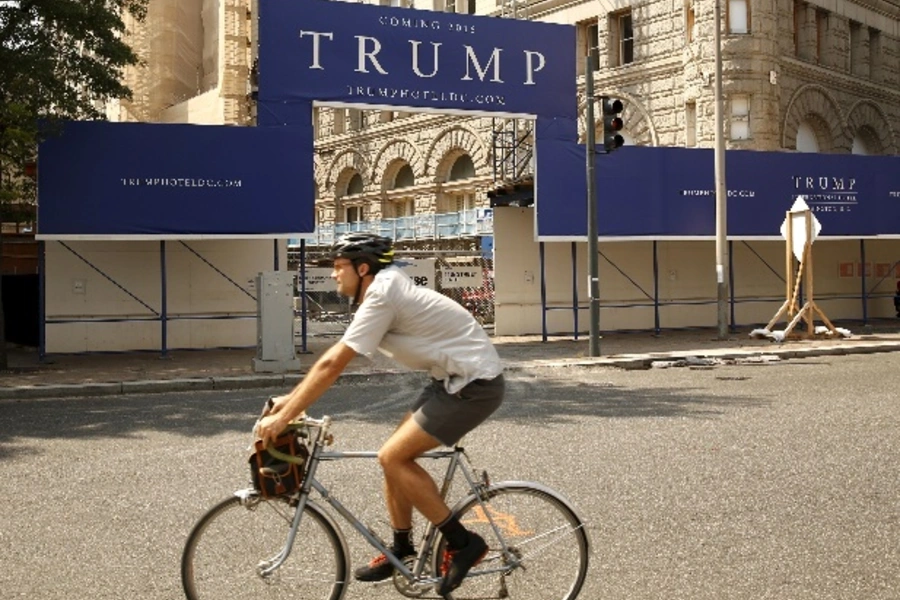Making America Great is Like Making a Great Hotel

More on:
As the world watches one foreign policy hopeful after the next take a spin through the revolving doors of Trump Tower to meet with President-Elect Trump, it is easy to imagine that it is CEO Trump interviewing candidates for the top positions at one of his new hotels abroad. There will be a chief marketing officer, a chief financial officer, legal counsel, and a communications director, among other senior staff. Once Mr. Trump picks his team, it will be time to weigh various opportunities. As they cast their eyes out to the Asia-Pacific, they should begin by undertaking the proper due diligence.
As a first step, Mr. Trump and his team should head out to the region to get a sense for the dynamics at play. Much as he would scout out locations for a new hotel, Mr. Trump should study the Asian political and economic landscape. What is the view from the property? Who lives there? What are the economics of the area? How stable is the region? What do people want? What is the value-added of the U.S. brand? Sitting in Washington and New York is not useful for understanding the regional dynamics of the United States and even less useful for understanding those in Asia.
Mr. Trump also needs to assess the competition. What do others offer that the United States does not? In Asia, the competition is primarily from China, which has established a new financing mechanism, the Asian Infrastructure Investment Bank, along with a multi-year strategic plan, “One Belt, One Road”, to spread China Inc. throughout the region. China is also expanding its security forces to lay claim to future potential hotel locations. How much market share are we ready to cede to Beijing?
And what about our joint ventures? Brand America has many longstanding and trustworthy regional partners, such as Singapore, Japan, Australia, and South Korea. These partners are not only useful in keeping the United States apprised of any potential risks to its investments but also are critical to ensuring that potential spoilers—say North Korea—do not keep Team USA from doing its job. More recently, the United States has been expanding its position, developing new relationships with countries such as Vietnam and Myanmar. While these properties are not quite ready for prime time, they show a lot of promise. Still others, such as the Philippines, are clearly in need of refurbishment.
The United States is also renowned as a high quality investor, introducing best practices throughout the region. Transparency, accountability, and a strong legal framework have been the hallmarks of U.S. investments in Asia; and these commitments have contributed to the regional security, free trade, and democratic values that have enabled regional peace and economic success. A Trump presidency should consider the long-term payout from maintaining the United States’ reputation for good governance and strong corporate social responsibility.
Finally, Mr. Trump and his team should take a step back to consider the long-term strategy for the company. Hotels are one thing, but what about golf courses, restaurants, and casinos? On the face of it, President-Elect Trump may believe that his plan to withdraw the United States from the Trans-Pacific Partnership (TPP) agreement on his first day in office is costless—the United States hasn’t ratified the agreement and estimated gains from the agreement amount to only a 0.5 percent increase in U.S. incomes by 2030. It is like canceling a project of which Trump and his team did not conceive. But without TPP, U.S. companies will be disadvantaged in a world in which the most dynamic part of the global economy—the Asia-Pacific—is likely bound by a trade agreement, the Regional Comprehensive Economic Partnership (RCEP) that does not include the United States. Companies will not want to base production in the United States for goods to be sold in RCEP member economies, which account for 30 percent of the world’s GDP and half of the world’s population. The collapse of TPP could prove to be a silent job killer for Americans.
President-Elect Trump needs to assess whether he wants the United States to be a Leading Hotel of the World or a small budget chain based only in the United States. A great hotel has several attributes: an excellent location, a strategic vision, the ability to anticipate guests’ needs, an ability to innovate, and excellent amenities and services. Without these things, a hotel will be second rate; no one will emulate its practices, and no one will want to stay there. The same is true of the United States.
Read more about how the Trump administration should approach U.S. policy toward China, Japan, Korea, South Asia, and Southeast Asia.
More on:
 Online Store
Online Store